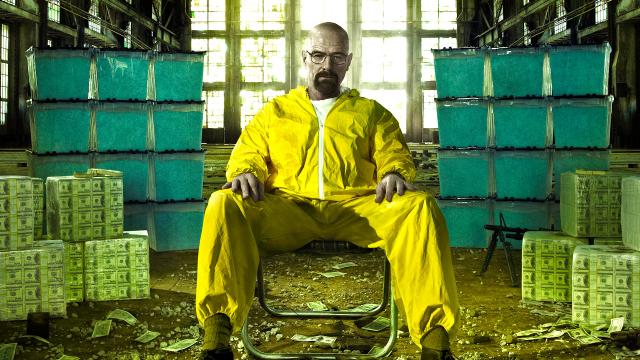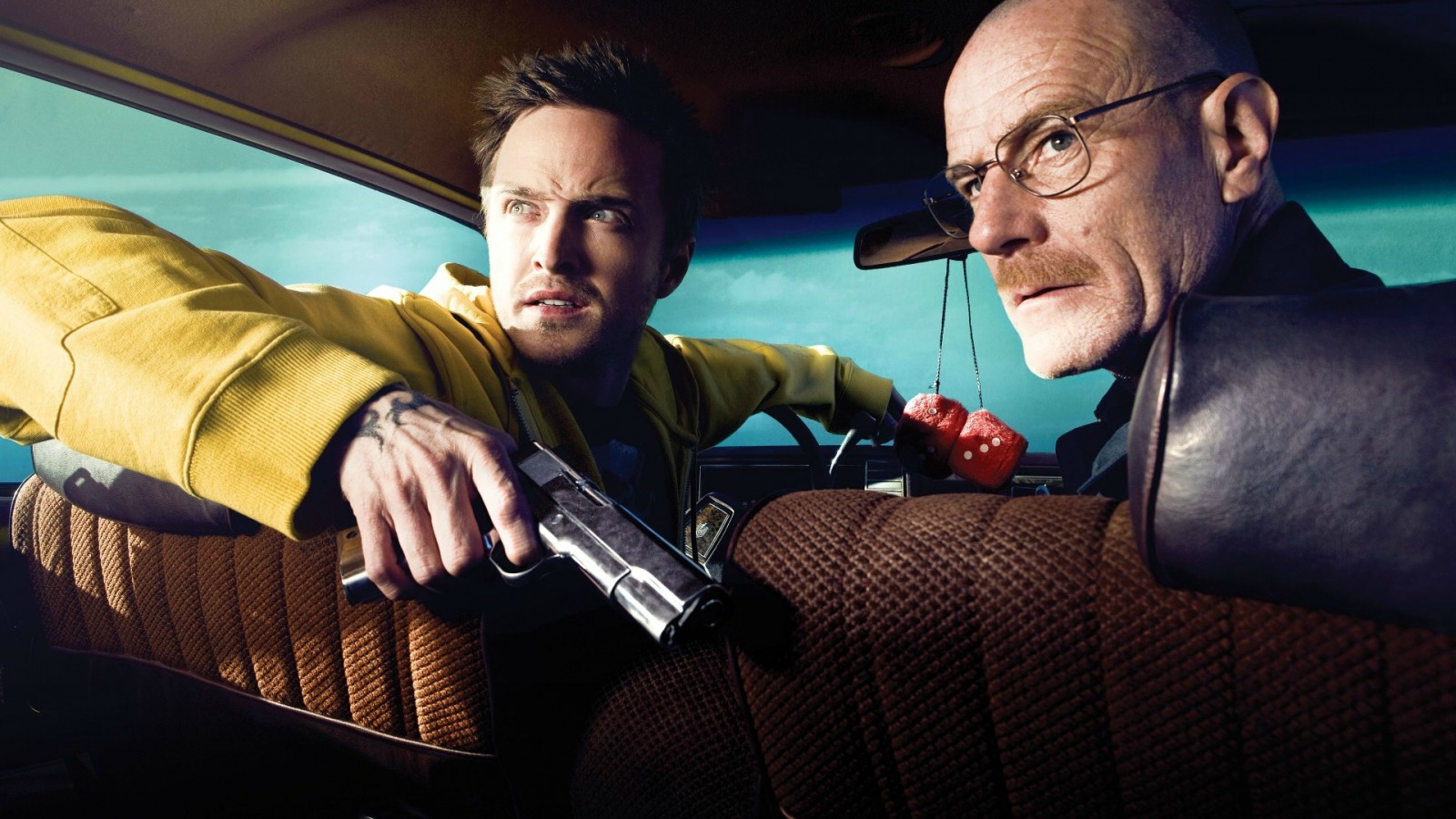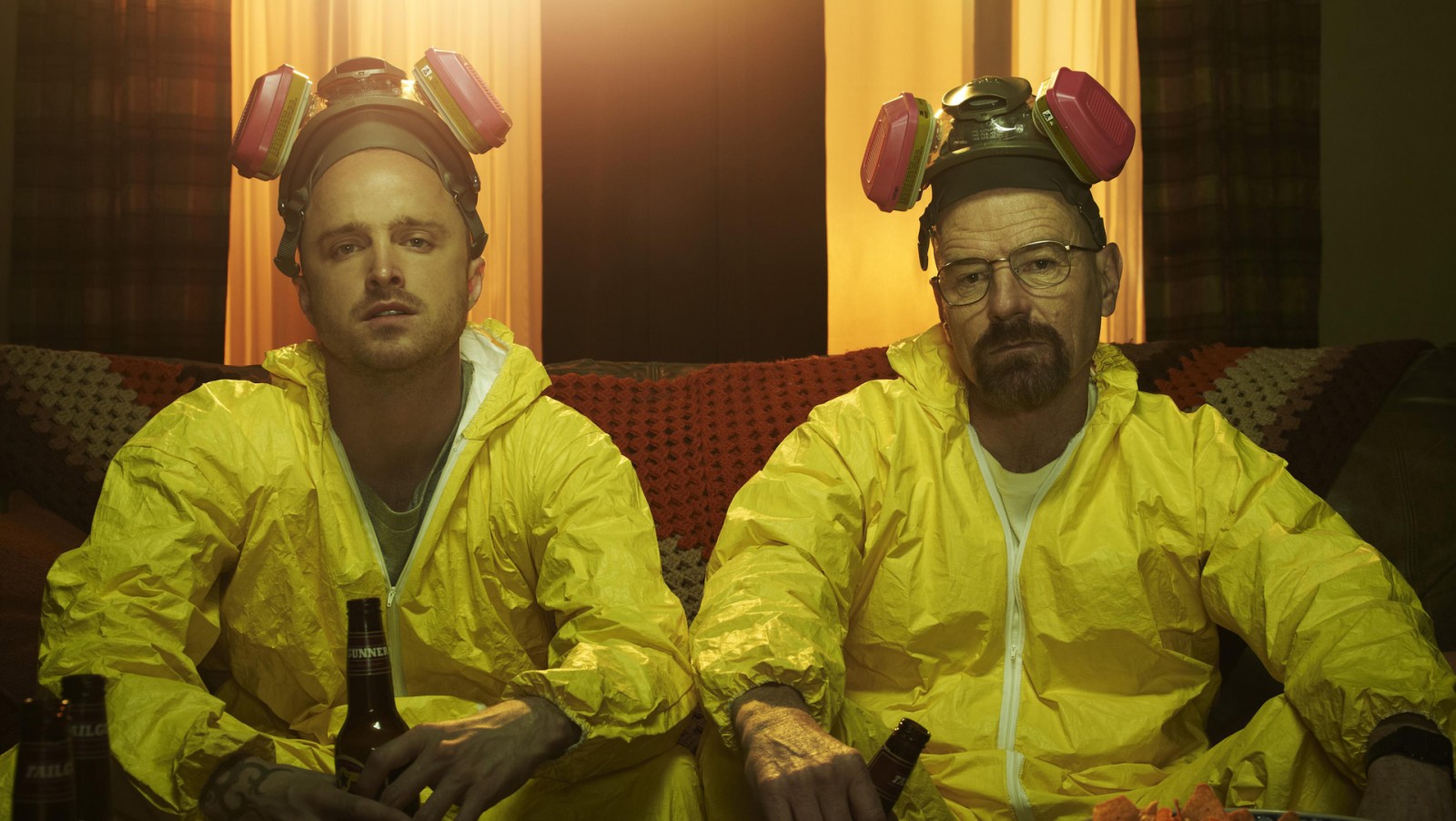
Walter White is a businessman. White, like many "success stories," started small with a big revolutionary recipe: he knew how to make the purest methamphetamine. Just like other market giants, his brand grew to reach the world, quite literally. The story of Breaking Bad’s Walter White is, in many ways, also the story of the free market and the perils of capitalism, greed and success.
In the closing scene of the silent film classic Greed (1924), which was written and directed by Erich Von Stroheim, Death Valley is the hero much like the desert outside of Albuquerque in Breaking Bad: the location where things start and finish. In Greed, the final sequence of events sees two old friends, now enemies, fighting over money somewhere in the remote valley. Stroheim colored the scene a yellowish hue, as if to say that the whole world is now the color of gold, of money, saturated with the tint of banknotes.
Likewise, in Breaking Bad’s "Ozymandias" – the 14th episode in the 5th season of Vince Gilligan's show, which ends on Sunday – White is pushing a barrel filled with $11 million on the rough desert sand. Walter and his money is all that remains. The family he wanted so badly to protect has spilled him out, and Walt with his barrel of cash is what’s left after the dust storm settles. Greed, after all, is not good. It kills. At this same spot where it all began, it is all ending.
To catch up the uninitiated: White, a once frustrated chemistry genius, is now the most dangerous man in the southwestern United States, and perhaps the Czech Republic, too. A Nobel Prize contributor with an unfulfilled life and untapped potential, he helped build a corporation that is now a global powerhouse – though he saw none of its riches – and is meanwhile a struggling chemistry teacher with a family that depends on him. Faced with cancer, White crosses the barrier of fear and challenges his desire to construct a different fate.
"Mr. White," as his former student-turned-business partner Jesse Pinkman calls him, first makes his mark cooking blue crystal meth out of a decades-old trailer under the open skies of the New Mexico desert. Once White and Pinkman's product grabs the market’s attention, expansion becomes a natural – and necessary – next step. Everyone wants a piece of what they're making, and they can't sell enough of it. It is Capital’s biggest dream: the success of winner-take-all entrepreneurship.
In the midst White's rise to power, an alter-ego named "Heisenberg" is born. White, as Heisenberg, sees himself as the God of his realm: he is creator and destroyer, the just and unjust. And he is punisher, as well.
When fast food franchise owner and drug kingpin Gustavo Fring, or Gus, outfits White and Pinkman with a multimillion dollar lab to do their master cooking for him, the story takes off in even newer and more perilous directions. If green is the color of money, yellow – in the form of glowing, bright protective suits, which they wear on the job – is the color of insanity. It also evokes images of Victorian manufacturing and the Industrial Revolution.
But with their new sparkling lab come new conflicts for White and Pinkman, who are receiving only a fraction of the profits from Fring, who has gone up against the Mexican cartels in an attempt to dominate the entire southwest market. Pinkman is the character most lied to and most deceived throughout the series, and the complexity of his relationship with White needs stacks of ink to explore. Their once strong bond proves more fragile than any other relationship in Breaking Bad.
In the fifth season, with the local supply chain closely monitored by the government and the DEA – which includes White's brother-in-law agent, Hank – White takes his product across the Atlantic. Assisted by Fring's old partners, White begins shipping his blue meth to Europe and the Czech Republic specifically, where the market is craving his product.
White’s meth empire is built off the need for power, recognition and money – not to mention on top of the bones of many. It is now a global brand, visually recognized and sought after, celebrated by consumers and distributors. White becomes part of the new post-communist Czech landscape, yet remains haunted by the phantom empire that he has built – no so unlike a bloated, law-breaking Wall Street enterprise that risks collapse at any second.
Mistaken are those who think that Breaking Bad is only a social read into America's knee-deep war on drugs, rather than a tragedy. The show, in fact, speaks the current languages of the market perfectly: one that not only understands branding and expansion, but which thrives on greed and ambition. This is a capitalism-gone-wrong story at its core: Walter White may "succeed" as a cutthroat businessman, but the absurdity of his choices shape his ultimate fate.
Since White is already dying of cancer, death is not the worst scenario. He’s already lost his family, his identity and he is on the run. His days craving control, power and domination are behind him. "Heisenberg," after all, is the sum of an endless stream of lies. He is the embodiment of the modern market: where wealth is built and empires are floated like large pieces of paper glued together. Light and hollow, without a moral core. Law-breaking. And quite, quite bad.
3 WAYS TO SHOW YOUR SUPPORT
- Log in to post comments


















